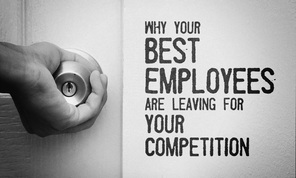
Here are eight steps to help you build better relationships with your employees:
Step 1 – Be Accessible
This doesn’t mean giving your personal number out to everyone so they can call you at any time. By operating an effective open door policy, where employees can come to you with new ideas, concerns and, heaven forbid, complaints, makes it easier to establish a give and take relationship with your staff.
Step 2 – Be Visible
Advances in technology, from video conferencing to instant messaging, have certainly made keeping up with the affairs of your business easier. However, nothing can replace your physical presence in the office or on the production floor. Make sure you don’t become so busy that you neglect to be visible to your employees.
Douglas Conant, former CEO of Campbell’s Soup Company, credited a lot of his success and the revitalisation of the company, to walking around a different part of the company headquarters every day and engaging with the staff.
Step 3 – Get Involved
Following directly on from step 2, if you want to develop real relationships with your employees, then you need to spend quality time with them. It's not enough just to be present for meetings and other essential tasks, you have to be there for the ups and downs. Offer your help on a difficult project, ask them about their work, hobbies and family and take them out for lunch after a particularly busy period.
Step 4 – Be Fair
Few things breed discontent and ill-will in the workplace faster than obvious favouritism toward certain employees. You're not going to like everyone equally, of course, but the important thing is to treat all employees equally. Enforce rules uniformly, reward hard work and exceeded expectations the same way for every employee. A well thought out staff handbook is a must if you wish to achieve this.
Step 5 – Be Reasonable
No matter how personable you are, or how well your employees like you personally, you're pushing for disgruntled employees if you ask for the impossible. Make sure you set reasonable goals and achievable expectations.
Step 6 – Involve Your Employees
When possible include employees in important decisions. The benefits of this are twofold. Firstly, listening to the needs and challenges of your staff can highlight issues and opportunities that might have otherwise been overlooked. Secondly, when employees work together to create policy, set goals, choose the tools they need to work and make other decisions integral to the organisation, they feel valued and important to the business and to you.
Step 7 – Be Honest
We all heard it as children and it holds true today: Honesty is the best policy. When you lie to employees, you erode their trust, and that erosion of trust results in a damaged relationship. Even when telling the truth is difficult, bite the bullet. Studies have shown that business environments with high levels of trust foster significantly more creative and more productive employees.
Step 8 – Be Appreciative
When employees do something well or beyond expectation, acknowledge it and show your appreciation. It costs nothing but can mean a lot. According to the Harvard Business Review, research shows that the ratio of positive to negative interactions is 5:1 in a successful relationship. ‘You don’t need to pay someone five compliments before offering criticism, but do be mindful of the ratio’.
Step 9 – Create Opportunities to Grow
In order to keep your employees interested and engaged they must see themselves advancing within the business, both in terms of their skills and their position within the business. Encouraging them to continue their education or professional development – and paying for it - shows your support. Your employees will work harder and more effectively with this level of support.
The contents of this article are necessarily expressed in broad terms and limited to general information rather than detailed analyses or legal advice. Specialist professional advice should always be obtained to address legal and other issues arising in specific contexts.


 RSS Feed
RSS Feed